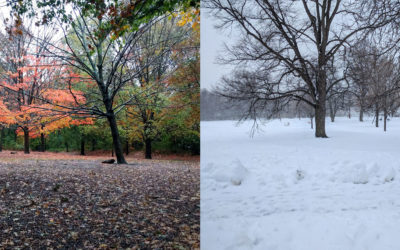Simply Smart Three
How to Get Smart About Science and Math
Simply Smart Three—How to Get Smart About Science and Math
By Robert DiYanni, New York University
Preface
This volume follows a pair of earlier companion books: Simply Smart—Learning for Your Life and Simply Smart Two—How to Get Smart About Humanities. The first work explains how to develop smart skills—critical and creative thinking, critical reading and writing, effective listening and speaking. Simply Smart Two emphasizes knowledge—how to become smarter about a suite of disciplines across the humanities. Like that second book, this one, Simply Smart Three—How to Get Smart About Science and Math, shifts the focus from skills to aspects and elements of math and the sciences.
Individual chapters of Simply Smart Three explore basic questions and concerns of the sciences generally, with a focus on specific topics in biology, chemistry, and physics. I also take up a few mathematical topics regarding numbers and then attend to some approaches to geometry. My goal is to get you thinking productively, in a preliminary way, about each discipline’s central interests and issues.
In his Analects, Confucius says: “Learning without thinking is useless; thinking without learning is dangerous.” For Confucius, thinking needs to be wedded to learning, and learning linked to thinking. Thinking and learning are inseparable. We can neither learn without thinking nor think without learning. Simply Smart Three—How to Get Smart About Science and Math takes Confucius’ idea as axiomatic; learning develops best in context, in terms of specific fields of study. Considering the differing perspectives of varied science disciplines will make you smarter. (And it will also prepare you to converse confidently in situations when you meet new people from different backgrounds and with varied interests—the “cocktail party” scenario.)
Although I take a wide view of the disciplines included, I make no attempt to discuss every major topic within them. Nor do I try to go deeply into any single aspect of a particular discipline. I offer, instead, a taste of the disciplines included and an opportunity to get acquainted—or re-acquainted—with their fundamental facets and essential elements.
This book, thus, is not for experts, but rather for those with limited knowledge of the fields and subjects included. For some readers, it will serve as a primer; for others, perhaps you among them, it will extend what you know; for still others, it provides an opportunity for synthesis, consolidation, even provocation.
My consideration of disciplinary knowledge is both eclectic and synthetic. I synthesize a range of sources, many of them recent books. Getting Smart Three—How to Get Smart About Science and Math offers you eight chapters and four interludes to discover new ideas, exercise your thinking, and engage in thoughtful inquiry—all while helping you become smarter.
Each science, social science or math discipline follows methods that provide the grounds for its authority. Each discipline provides its own special way of gathering, presenting, and evaluating evidence for the truths it claims to present about the world and its workings. Each has its distinctive way of identifying, asking, and answering questions it considers of importance and value.
Throughout the book, I take up the following questions: What approaches to knowledge does each science discipline take? What questions are central to each discipline? What makes each discipline what it is and not something else? How do practitioners of the sciences convey their knowledge, craft, and art?
Considering these and related questions provides you with an opportunity to refresh and reconsider what you already know, while broadening your knowledge base and deepening your understanding. I hope that you find in the following pages many pleasures and rewards of learning.
Why not begin discovering those rewards and pleasures right away?
TABLE OF CONTENTS
Preface
Chapter One Getting Smart About Science
Interlude 1 Scientific Research and Bias
Chapter Two Getting Smart About Big Ideas in Science
Chapter Three Getting Smart About Psychology
Interlude 2 A Bit of Behavioral Economics
Chapter Four Getting Smart About Political Science
Interlude 3 A Hint of Anthropology
Chapter Five Getting Smart About Sociology
Chapter Six Getting Smart About Math and Numbers
Interlude 4 Some Interesting Numbers
Chapter Seven Getting Smart About Geometry
Chapter Eight Getting Smart with Influential Science and Math Educators
Epilogue Thinking about Technology
References
Index
Current Writing Projects
My current writing projects are linked below: (1) a book on reading literature (Improvisations); (2) two books on getting smarter (fast and across the board); (3) a pair of memoirs about my teaching life (50 years+) and my life with music (even more years!). Also included is information about my biggest work-in-progress: an encyclopedic summa pedagogica, with the current title: Provocative Pairs—Learning with the World’s Masters (152 chapters—and counting—each chapter a dozen double-spaced pages, with most chapters devoted to a pair of great masters past and present).
For each of these works in the making, I have provided a table of contents and preface. A couple of them also include a sample chapter. An additional book I have in the works is Poems to Live By, for which I’ve included about a third of what I’ve written so far—also with a brief TOC and prefatory note.
Mastery—Learning with the World’s Best Masters
SMARTER—How Getting Smarter Can Enrich Your Life
Think for Your Life
How Critical and Creative Thinking Can Improve Your Life
Teach for Your Life
Stories of Teaching & Learning
Double Life: The Teaching Life & Living with Music
Poems to Live By
Essays: Reflections and Ruminations

Robert DiYanni
Author ⪢ | Professor ⪢ | Consultant ⪢
Robert DiYanni is a professor of humanities at New York University, having served as an instructional consultant at the NYU Center for the Advancement of Teaching and Center for Faculty Advancement. For these centers he conducted workshops and seminars on all aspects of pedagogy, consulted with faculty about teaching concerns, visited and observed classes, and provided a wide range of pedagogical consultative services. Professor DiYanni serves on the faculties of the School of Professional Studies and the Stern School of Business at NYU. He earned his undergraduate degree in English from Rutgers University, attended a Master of Arts in Teaching program at Johns Hopkins University, and received a Ph.D. in English Language and Literature from the City University of New York Graduate Center.
In addition to his work at NYU, Dr. DiYanni has taught at City University of New York, at Pace University, and as a Visiting Professor at Tsing Hua University in Taiwan and at Harvard University. As a high school teacher for four years and a college professor for more than four decades, Professor DiYanni has taught students from eighth grade through doctoral candidates. Most of his teaching, however, has been with college and university undergraduates. His numerous workshops, offered in more than twenty countries, have been attended by secondary school teachers and administrators, as well as by undergraduate college and university faculty and administrators.
Dr. DiYanni has written and edited numerous textbooks, among them, Literature: An Introduction; The Scribner Handbook for Writers (with Pat C. Hoy II); Arts and Culture: An Introduction to the Humanities, (with Janetta Rebold Benton), the basis for a series of lectures given at the Metropolitan Museum of Art; and Modern American Poets: Their Voices and Visions, which served as a companion text for the PBS television series Voices and Vision, which aired in the late 1980s.
You may also want to read these…
Comparing Poems
Comparison is one of the best ways of teaching anything; it is especially useful for reading and teaching…
The Widow of Ephesus
Once there was a certain married woman in the city of Ephesus, whose faithfulness to her husband…
Villanelle Variations
“I learn by going where I have to go,” writes Theodore Roethke in “The Waking.” “The art of losing…


